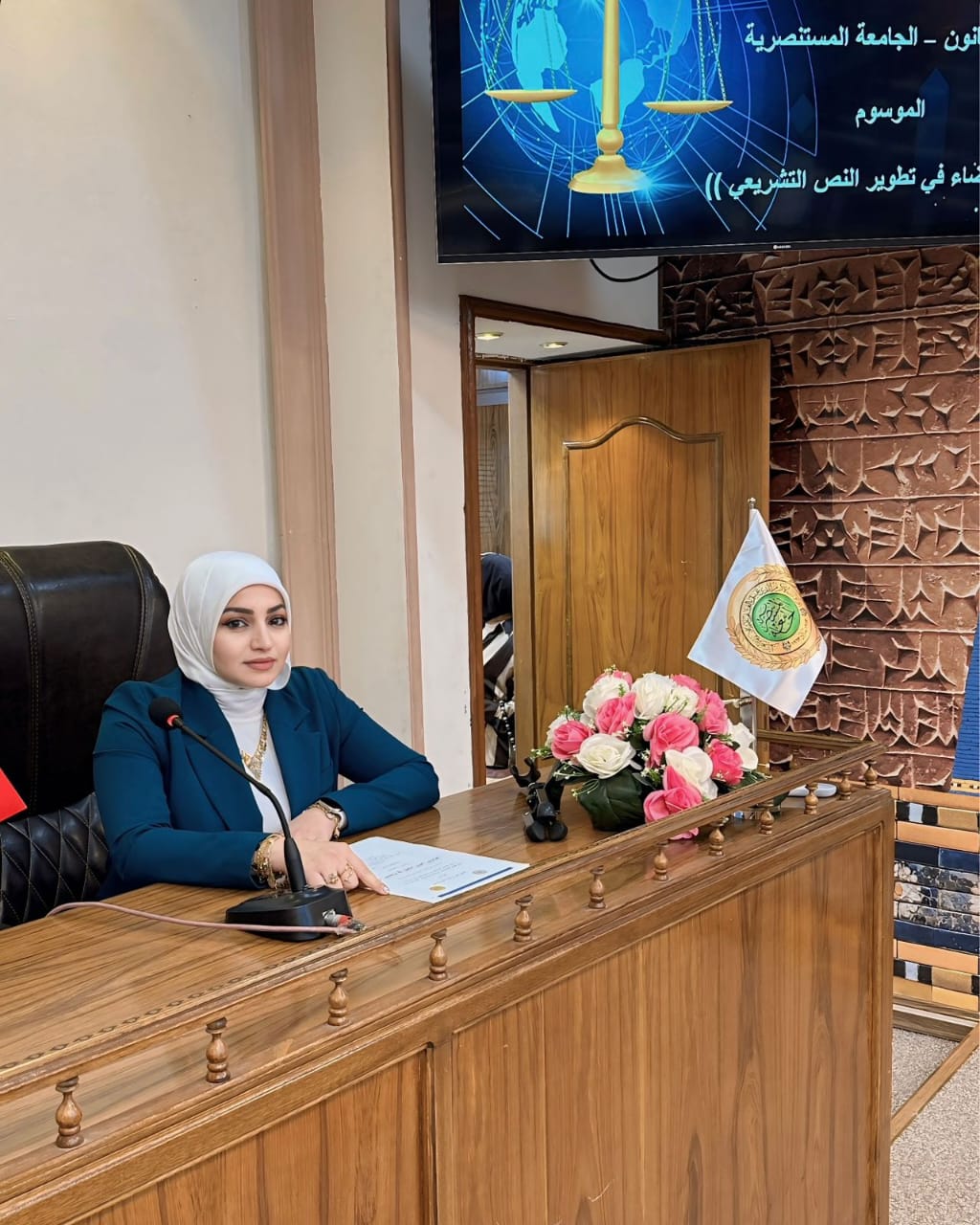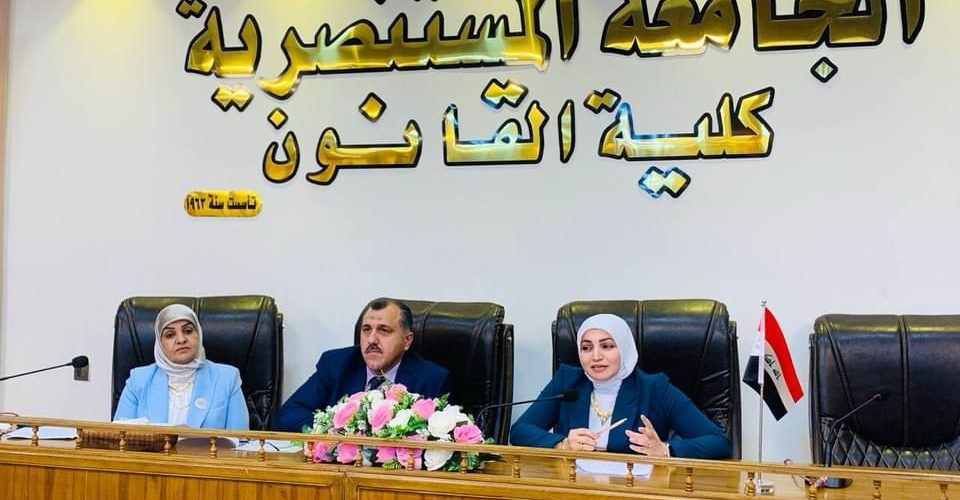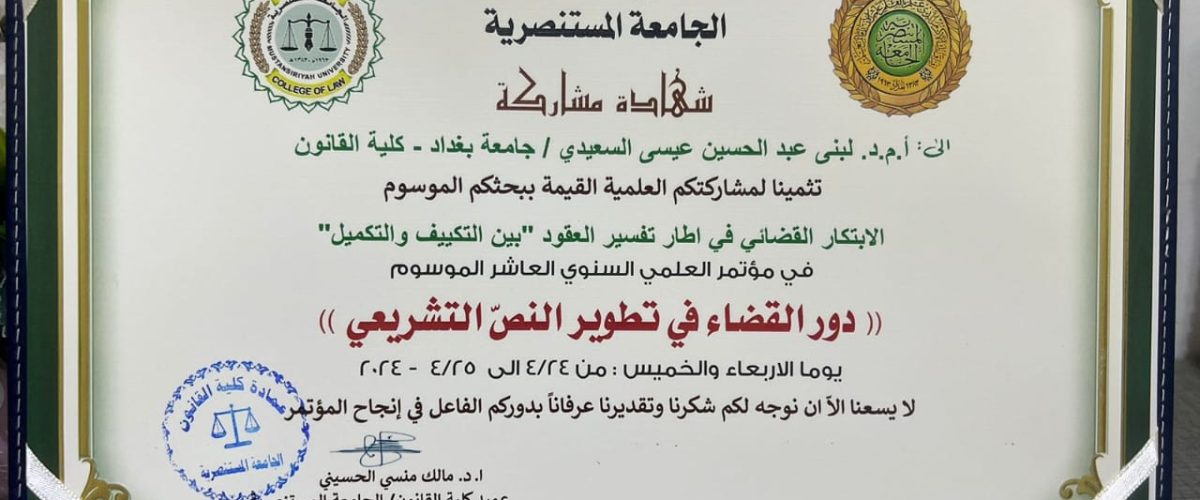The lecturer in the private law at the Faculty of Law/ University of Baghdad (Dr. Lubna Abdel Hussein Issa) participated in the Tenth Annual Scientific Conference held by the college of law/ Mustansiriyah University on Wednesday morning, 24/4/2024, marked with (The Role of the Judiciary in the Development of the Legislative Text), about her research labelled Judicial Innovation in the Framework of Contract interpretation” between adaptation and Complementation”. The research discusses judicial innovation in the interpretation of contracts within the framework of technological progress, focusing on scientific progress in the field of smart contracts and block chains.
If smart contracts take place in an environment beyond the control of the user, once they are concluded, they are self-executed, so they cannot be modified or cancelled because they belong to digital platforms, so how can a judge interpret the contract? How to get rid of the common intention of the parties and how to adapt and supplement this type of contract.
The research focuses on the difference between judicial innovation and jurisprudence in several aspects: judicial jurisprudence is based on prevailing legal texts and principles; judicial innovation means the introduction of new methods and interpretations of laws that may not be directly supported by explicit legal texts or judicial precedents.
Jurisprudence aims to maintain the stability of the legal system by relying on judicial precedents and well-known principles, while judicial innovation aims to adapt to social, economic and cultural changes and solve legal problems that may not be adequately covered by current legal texts.
The research reached several recommendations, the most important of which is in the law of pleadings: the inclusion of a section on electronic judicial procedures, which helps to improve efficiency and effectiveness in dealing with smart contracts, the innovation here is to apply these technologies in a way that enhances the quality of judicial performance, in the Civil Code: A-adding clauses related to digital contracts and interactions based on artificial intelligence, including the interpretation of these contracts and controls to adapt and complement based on new technological contexts, B – amending the provisions related to the interpretation and supplementation of contracts to include references to the use of artificial intelligence and advanced technology as a basis for providing more accurate and fair interpretations and complements.



